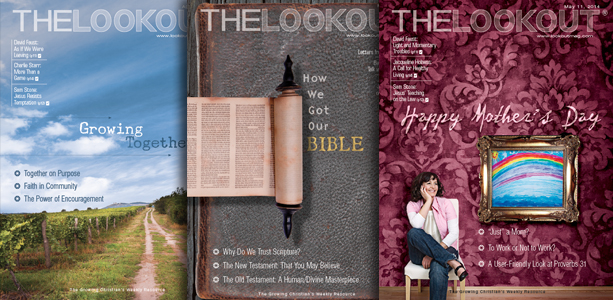By Sam E. Stone
 While Jesus was teaching in Galilee some 50 miles away from them, the religious leaders in Jerusalem sent a delegation to question him. This demonstrates clearly that they regarded him as a threat to their position and influence with the people.
While Jesus was teaching in Galilee some 50 miles away from them, the religious leaders in Jerusalem sent a delegation to question him. This demonstrates clearly that they regarded him as a threat to their position and influence with the people.
The Pharisees and teachers of the law were very influential to the Jews in all religious matters. They held to a strict interpretation and application of God’s law. Most of the common people felt, “Whatever they say must be right!” Jesus had clashed with these members of the religious elite before (see Matthew 12:14).
Accusation
Matthew 15:1, 2
When the Pharisees (literally “the separated ones”) came to Jesus, they had their attack planned. They had observed that the disciples of Jesus did not follow the tradition of the elders. Their criticism was based not on the violation of a specific Old Testament verse, but on their interpretation of what a given passage actually meant.
The specific scriptural rules for washings are found in Exodus 30:17-21 and Leviticus 15:11. The tradition of the elders included the oral interpretations of the Old Testament which famous teachers had made. The law itself called for ritual washings on certain occasions (see Mark 7:3, 4). However, the tradition of the elders called for additional washings. R. C. Foster explained, “This was not sanitation; it was ceremony.”
Rebuke
Matthew 15:3-9
Rather than respond to the Pharisees’ question, Jesus pointed out the broader, basic issue: God’s command is more important than your traditions. The requirement to honor parents is clearly stated in the Old Testament (Exodus 20:12; Deuteronomy 5:16). The penalty for violating this command is death (Leviticus 20:9). This is obviously an important lesson!
To the religious leaders, however, this rule was not one they wanted to keep. Looking for a loophole, they remembered that if one’s money were declared an offering to God, it was exempt from having to be used to help parents. All that it took to avoid their responsibility to their parents was to say the word corban (meaning “devoted to God”). They didn’t have to actually give the money to God though, just say that they were.
William Barclay correctly observed, “To the Scribes and Pharisees worship was ritual, ceremony law; to Jesus worship was the clean heart and the loving life. Here is the clash.” God cares about what we do, not just what we talk about (see also 1 Timothy 5:4-8). Jesus permits no hypocrisy.
Quoting from Isaiah 29:13, Jesus showed what was clearly evident about the religious leaders: “Their hearts are far from me . . . their teachings are merely human rules.” All who place tradition above God’s rule are wrong.
Clarification
Matthew 15:10, 11, 15-20
After correcting the religious leaders, Jesus then explained what God really cares about. As William Barclay put it, “Once and for all Jesus lays it down that what matters is not the state of a man’s ritual observance, but the state of a man’s heart.” It is a person’s heart that must be clean, not simply his body (compare 1 Peter 3:21).
When the disciples were again with Jesus privately, Peter asked for an explanation. The Lord reviewed once again what causes sin. The disciples had grown up thinking that sin was eating something that wasn’t kosher. Jesus explained that this isn’t the way sin works. Food is taken into the digestive system; whatever is not needed then leaves the body. Certainly a person should avoid dangerous germs that can make him sick, but avoiding sin means having a pure heart inside.
Out of the heart (the inner being) evil and sinful actions begin. This truth was taught in the Old Testament. Proverbs 23:7 reads, “As he thinketh in his heart, so is he” (King James Version). Foster said, “Jesus’ proposition was that real defilement is not ceremonial but moral; and not that which enters the mouth, but what proceeds from the heart defiles.” This declaration sets aside the distinction that the Old Testament law made concerning clean and unclean meats (see Mark 7:19). J. W. McGarvey added, “The declaration of such repeal came later (Acts 10:14, 15). He means that he there drew those distinctions and laid down those principles which supplanted the Mosaic law when the kingdom of God was ushered in on the day of Pentecost.”
Sam E. Stone is the former editor of Christian Standard. He continues his writing and speaking ministry from his home in Cincinnati, Ohio.



Comments: no replies